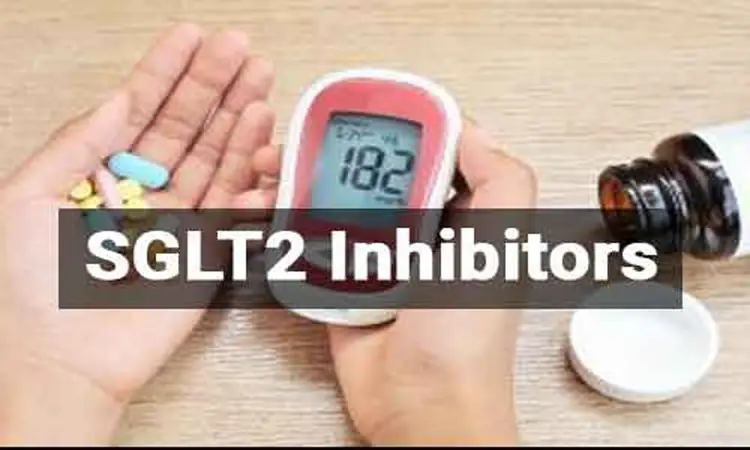- Home
- Medical news & Guidelines
- Anesthesiology
- Cardiology and CTVS
- Critical Care
- Dentistry
- Dermatology
- Diabetes and Endocrinology
- ENT
- Gastroenterology
- Medicine
- Nephrology
- Neurology
- Obstretics-Gynaecology
- Oncology
- Ophthalmology
- Orthopaedics
- Pediatrics-Neonatology
- Psychiatry
- Pulmonology
- Radiology
- Surgery
- Urology
- Laboratory Medicine
- Diet
- Nursing
- Paramedical
- Physiotherapy
- Health news
- Fact Check
- Bone Health Fact Check
- Brain Health Fact Check
- Cancer Related Fact Check
- Child Care Fact Check
- Dental and oral health fact check
- Diabetes and metabolic health fact check
- Diet and Nutrition Fact Check
- Eye and ENT Care Fact Check
- Fitness fact check
- Gut health fact check
- Heart health fact check
- Kidney health fact check
- Medical education fact check
- Men's health fact check
- Respiratory fact check
- Skin and hair care fact check
- Vaccine and Immunization fact check
- Women's health fact check
- AYUSH
- State News
- Andaman and Nicobar Islands
- Andhra Pradesh
- Arunachal Pradesh
- Assam
- Bihar
- Chandigarh
- Chattisgarh
- Dadra and Nagar Haveli
- Daman and Diu
- Delhi
- Goa
- Gujarat
- Haryana
- Himachal Pradesh
- Jammu & Kashmir
- Jharkhand
- Karnataka
- Kerala
- Ladakh
- Lakshadweep
- Madhya Pradesh
- Maharashtra
- Manipur
- Meghalaya
- Mizoram
- Nagaland
- Odisha
- Puducherry
- Punjab
- Rajasthan
- Sikkim
- Tamil Nadu
- Telangana
- Tripura
- Uttar Pradesh
- Uttrakhand
- West Bengal
- Medical Education
- Industry
SGLT2 inhibitors may lower anemia risk in diabetes patients, study finds

Japan: The use of sodium-glucose cotransporter 2 inhibitors (SGLT2i) is associated with higher levels of hemoglobin and lower anemia prevalence in real clinical practice, a recent study has found. The study appears in the Journal of Diabetes Investigation.
SGLT2 inhibitors have been shown to increase hemoglobin levels in short-term clinical trials. However, it is not known whether it is also applicable in real clinical practice. Miho Murashima, Nagoya City University Graduate School of Medical Sciences, Japan, and colleagues, therefore, aimed to determine whether SGLT2 inhibitors increase hemoglobin levels in real clinical practice in a retrospective cohort study.
The study included diabetes patients who visited the authors' outpatient clinic from January 2019 to August 2020. Exposure of interest was the use of SGLT2i. Outcomes were hemoglobin levels.
To investigate the association between hemoglobin levels and estimated glomerular filtration rate (eGFR) for users and non-users of SGLT2i, non-linear regression models were fitted with restricted cubic splines. For the case-control study, cases (anemia defined as hemoglobin <120 g/L for men, <110 g/L for women or the use of erythropoiesis-stimulating agents) and controls were matched by age, sex, and eGFR. Among 2063 diabetics, 723 were on SGLT2i.
Following were the study's key findings:
- In the cross-sectional analyses, hemoglobin levels were higher among SGLT2i users compared with non-users at eGFR >15 mL/min/1.73m2.
- For the case-control study, 197 cases and controls were matched.
- Conditional logistic regression showed that the use of SGLT2i was associated with a significantly lower prevalence of anemia (OR: 0.35).
- Adjusted mean differences in hemoglobin levels between users and propensity score-matched non-users of SGLT2i were 7.0 g/L at 6 months.
- Among SGLT2i users, odds of increase in 6-month hemoglobin were similar across eGFR categories except for eGFR <15 mL/min/1.73m2.
The researchers concluded, "The use of SGLT2i was associated with higher hemoglobin levels and lower prevalence of anemia in real clinical practice."
Reference:
The study titled, "Sodium-glucose cotransporter 2 inhibitors and anemia among diabetic patients in real clinical practice," was published in the Journal of Diabetes Investigation.
DOI: https://onlinelibrary.wiley.com/doi/10.1111/jdi.13717
Dr Kamal Kant Kohli-MBBS, DTCD- a chest specialist with more than 30 years of practice and a flair for writing clinical articles, Dr Kamal Kant Kohli joined Medical Dialogues as a Chief Editor of Medical News. Besides writing articles, as an editor, he proofreads and verifies all the medical content published on Medical Dialogues including those coming from journals, studies,medical conferences,guidelines etc. Email: drkohli@medicaldialogues.in. Contact no. 011-43720751


